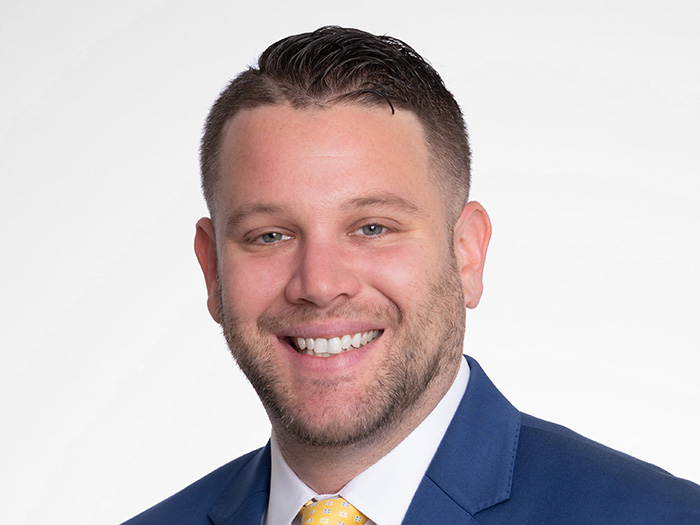3 Types of Workers’ Comp Mental Health Concerns and How to Address Them Before They Drive Up Claim Costs

After a workplace accident injured a truck driver, he began to feel nervous and frightened.
He was in his mid-forties and the accident tore his bicep, requiring extensive surgery. He’d been truck driving his entire career and feared the injury would prevent him from returning to work. His kids were current first-generation college students, and his wife’s job didn’t pay enough to cover their expenses. He was scared he wouldn’t be able to provide for his family.
His injury was physical, but he was struggling with his mental health as well. The possibility of not being able to return to truck driving weighed heavily on him. It wasn’t just his job – it was his whole identity.
“Many injured workers experience mental health challenges in the wake of physical injuries,” said Michelle Despres, vice president of product management at One Call. “Society has made significant strides in openly discussing mental health and the stigma surrounding it, but workers’ comp has lagged. We recognize the importance of addressing mental health, but the financial implications give us pause,” Despres said.
Ignoring mental health conditions in claims can be costly. NCCI found that claims with a mental health component are 2.5 times more expensive than those without. Workers’ comp professionals need to understand how mental health negatively affects injured worker recovery and take advantage of new tools and technologies that help address these issues in a cost-effective manner.
Three Main Types of Mental Health Concerns

Michelle Despres, vice president of product management, One Call
Within workers’ comp, mental health challenges typically arise in three ways. Here’s a quick look at each of them.
1) Mental Health Only: The first type is mental health only claims. These cases are fairly limited in number. In some cases, a worker might experience trauma from a workplace violence event or, in the case of first responders, they might develop PTSD from the intense nature of their job. Most states have laws that tightly govern when workers’ compensation covers these cases.
2) Mental-Physical: Mental-physical cases are ones where a worker already has a mental health condition – like anxiety or depression – before they file a claim for a physical workplace injury. The mental health condition didn’t necessarily cause the injury, but it may exist alongside it as a comorbidity, making the injury and the recovery more complicated.
3) Physical-Mental: With physical-mental claims, a physical injury occurs at work, and then mental health challenges follow. Workers might feel increased stress about their income while recovering from their job or they might be anxious about reinjury. Others might feel depressed by their loss of function.
“When someone suffers a high-severity injury, it’s almost inevitable they will experience fears and concerns,” Despres said. “People worry that moving, exercising, or returning to work will cause pain, so they avoid these activities altogether.”
Workers’ comp professionals can have a positive influence on these cases. In physical-mental claims, an injured worker faces hurdles to recovery because their anxiety, stress, or depression may prevent them from actively engaging. If providers and adjusters work together, they can help injured workers see that enthusiastically participating will help them feel better, both physically and mentally.
According to Despres, physical-mental cases accounted for 8.5-10% of all lost time claims over the past 12 years. Mental only and mental-physical made up less than 2% of mental health-related claims each year.
“The significant opportunity lies in addressing cases where mental health challenges develop after a physical injury occurs,” Despres said.
Treating Mental Health Like a Comorbidity
Workers’ comp professionals who address mental health challenges can significantly impact claims costs.
When Despres used the Official Disability Guidelines calculator to compare the costs of treating a 52-year-old with low back pain and no comorbidities to one with low back pain and mental health challenges, she found the mental health conditions nearly doubled claim costs and duration. In the case with no comorbidities, the claim cost $13,400 and lasted an average of 43 days. With comorbidities, it cost $25,300 and lasted an average of 82 days.
Despres likened it to addressing other comorbidities, like smoking or obesity. Though such conditions aren’t compensable on their own, workers’ comp might cover the cost of a weight loss program/drug or addiction treatments for smoking if it would qualify an injured worker for a needed surgery.
“Although conditions like smoking, obesity, or hypertension are not typically considered work-related, resolving them can sometimes be crucial in advancing the claim toward resolution,” Despres said.
Not every mental health case will need workers’ comp to pay for treatments. Most can be addressed with simple conversations between the injured worker, their family, and their care team. Despres emphasized this is why it’s necessary to treat the whole person.
“It’s important to consider the larger ecosystem of how that person lives and functions — whether they are alone, need help, or have a supportive family,” Despres said. “The quality of an injured worker’s support system can significantly impact their recovery. Contentious or unhelpful family members can hinder progress, while overly accommodating family members may prevent the individual from regaining their independence. The ideal support system strikes a balance: being supportive without smothering.”
Proactive Screening, Lower Claim Costs
There are several ways to help support an injured worker’s mental health. Screenings, where adjusters ask injured workers questions, can help detect mental health conditions before they escalate and impact a worker’s recovery.
Artificial intelligence programs can scan documentation and highlight potential challenges to future recovery. Sentiment scoring, for example, assesses the tone and words spoken during phone conversations between injured workers and One Call care coordinators. If a phone call goes awry, a manager can step in and talk to the injured worker, which can positively impact their mental health.
“Simple adjustments in approach, rather than costly separate services, can make a significant difference,” Despres said. “By identifying potential risks up front, we can oversee the claim more closely and adjust the approach as needed.”
It All Comes Down to Attitude
While it’s important to address mental health issues up front, there’s another obvious way to predict if injured workers will have a successful recovery.
“Injured workers who love their job, their employers, and their coworkers tend to have good outcomes regardless of the severity of their injury, while those who dislike their work or supervisors faced more challenges,” said Despres. “It’s as simple as creating a work environment where employees thrive, not just survive. And that’s something we can all play an active role in creating and encouraging at our respective employers.” &










